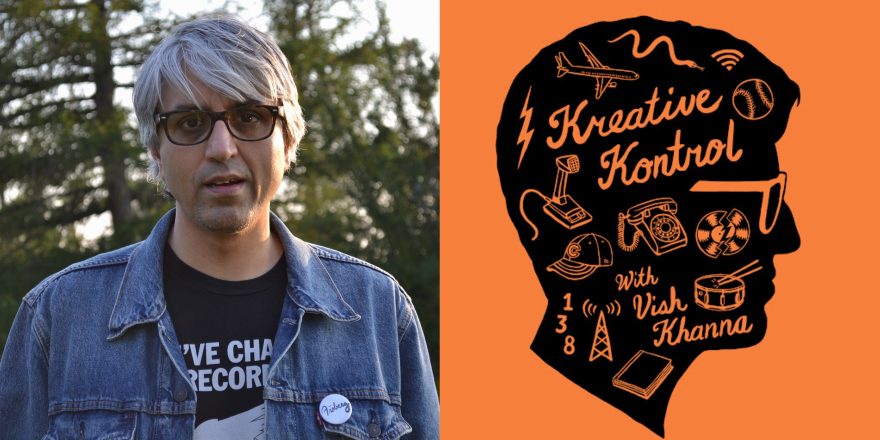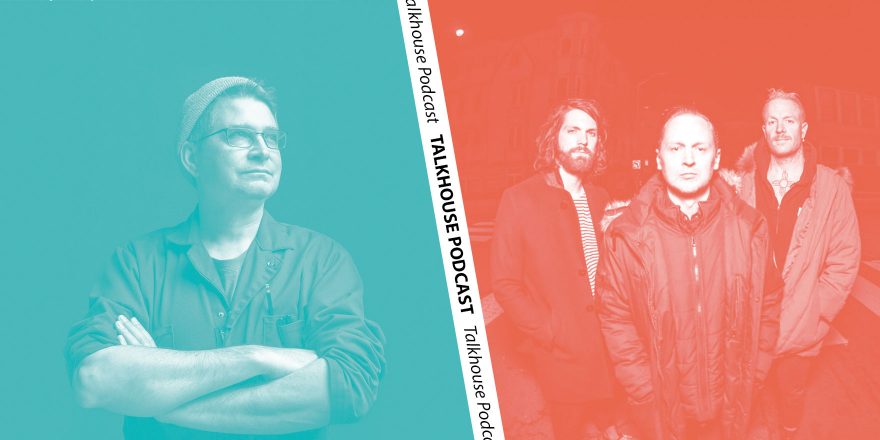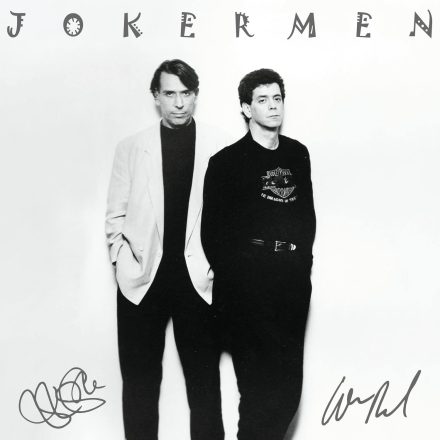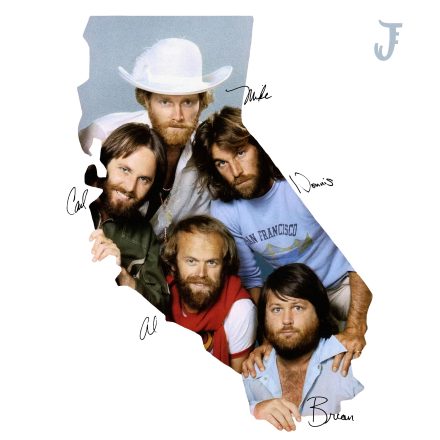As I noticed the episode numbers of my Kreative Kontrol podcast climbing closer to 1000, I had some decisions to make. Should I do anything special for this milestone? Was it even special? Was a retrospective in order or was it perhaps time to swing for the fences and invite an especially special guest to join me for an interview?
I decided on the latter, and that’s when I contacted David Letterman’s camp.
Most normal people with a long-running (yet still relatively obscure) Canadian podcast based in Edmonton, Alberta would not think, I’ll just send an email or two, and then I will get to speak with David Letterman — my broadcasting and comedy hero. But then most normal people don’t run an underground music, arts, and culture podcast for 12 years that, had it been controlled by some large network or company, likely would’ve been cancelled for low ratings or other sad metrics within three months of launching.
On my own, free of such constraints, I’ve been able to accomplish something I’m very proud of and facilitate discussions that sometimes I even marvel at, even though I’m the reason they happened. I made a comprehensive pod documentary about Drive Like Jehu — one of the greatest bands ever, but one with such a short, mysterious existence, very few of us fans really knew that much about them. I invited Steve Albini — who was on the show every year of its existence until his death in 2024 — and Ian MacKaye to have a dialogue about their parallel and crossing paths in punk. David Berman from Silver Jews returned to public life ever so briefly, speaking with me about his Purple Mountains album before succumbing to his depression and leaving this world behind. And all of Fugazi reconvened for their first group interview in decades to join me and filmmaker Jem Cohen to discuss their innovative music movie, Instrument.
All of that, plus creating a huge archive of interviews with Canadian and internationally acclaimed musicians, comedians, writers, authors, fellow podcasters, and at least one former Toronto Raptor (Damon Stoudamire), has led me to feel like I’m engaged in some kind of conversational adventure, as opposed to working a job.
Hell, I didn’t even seriously try making money from my Kreative Kontrol work until I was about 11 years into it, because I always had a day job, too. Until I didn’t, and I decided I just wanted to do this for a living for as long as possible, because it makes me happy. I am so fortunate that people stepped up to subscribe to the show on Patreon, and it’s keeping me going. Life is great!
And yet, there are intermingling doubts, desires, and delusions that I contend with every week, as I try to fill my time with self-imposed assignments, so I don’t dwell on any of those Ds.
The internet and capitalism dictate that I must exist and function within this swirl of overthinking, and the sensation that with a little luck and persistence, anything is possible. Having said that, I’m not always certain it’s great that I think anything is possible. Occasionally, the audacity of it all gives me pause. Our current media landscape suggests that a person like me — a diligent cultural journalist for 20 years in Canada, who began working as a freelance writer (mostly covering music, comedy, film, TV, books, and politics), added campus and community radio host/producer to the mix, worked for our national broadcaster, CBC Radio, lost that job, and then started his own show — can reach this shaky conclusion: You can do anything you desire, but some people may not think that that thing is really anything.
The doubters and doubts you deal with are often assuaged by lovely notes and messages and interactions with listeners and guests who have been profoundly affected by your work, and who value it immensely. But you’re also confronted by readily available stats and (sad) metrics that make the thing you love doing the most seem less impactful and viable than it feels. Every so often, this can be deeply demoralizing, and you become a smidge neurotic.
You start to use business-y terms about popularity, like “ceiling” and “resonance” and “likability” when talking to your wife about the limitations of your “labor of love,” as you sometimes ponder why you do it. But people telling you that what you do means something to them will make you high and you will persevere. You simply love doing it and will fight to keep doing it, against all odds.
The truth is, you deeply hope it contributes something worthwhile to your music and broader arts community — that it helps your guests connect with other people who might be into what they’re doing. Most of us who express ourselves creatively and publicly in some way don’t necessarily expect material success (unless we are the hip hop duo Clipse). We’ve been led to believe that the most spiritually fulfilling and ideal outcome after we put something into the world is that it will foster connections and awareness, and that that should be reward enough.
Somewhere, in the midst of all this truth, the independent podcaster can become somewhat delusional about who they are in the grand scheme of things. Every good, insightful talk with an impactful creative person, whether well-established and iconic or ascending and contemporary, always seems to lead to another. And another and another. A thousand talks, even.
It’s a conversational monster, a podcast; we can’t stop talking and listening to other people talk and we love it. And when the stature and profile of your guests keeps getting higher and the conversations feel unique or even insightful, you think you can talk to anyone.
So, you reach out to David Letterman’s people. And instead of replying to say, “What? No, he’s not talking to you lol,” or even not replying at all, they write back and say, “Can you kindly share how much time you would need and your deadline?”
After you give them that information, you are expectant. It’s gonna happen! Wow! For two weeks, you think this. You go through stages in this timeframe: elation, impatience, irritation, entitlement, hope, totally, totally unfounded anger at the time it’s taking and the lack of anyone replying to your follow-up(s).
Eventually, you realize you are maybe being and have been delusional. Then, you are angry with yourself. I was mad at me for thinking this could happen. And then, finally… a reply!
“We greatly appreciate your interest in speaking with David, but we must respectfully decline. Thank you so much and congratulations on your milestone!”
This makes sense. More sense than if he’d said yes, probably.
But still, you are left to wonder what they don’t see in you and your body of work that you and the people who tell you it’s great and significant can plainly see. That it might be obscure, but it’s also very genuine and well-respected, and maybe they’re the ones who are missing out by not being a part of it, because by and large, it’s been very good and enjoyable for those who participate in or engage with it.
As a podcaster yourself, Mr. Letterman — a one-of-one television and comedy icon — is not your colleague.
But like you, he has humanized people via interviews. (And actually, there’s a reasonable extrapolation to make here about podcasts democratizing the now-flailing late night TV format but with thousands of hosts instead of four or five, and less production costs, though now more people are making video podcasts, which often look a lot like TV talk shows, except all of us can see all of the amplification and recording equipment that is used, but I digress). And like you’ve done over a thousand episodes and conversations, you hope for an opportunity to figure out if you two have common ground and can relate to one another as people and maybe even, yeah, colleagues.
You respect David Letterman’s work, and you love him. Maybe you just want to tell him that in person.
This is the strange world of internet work-life and interaction. As a podcaster, you’re gassed up or deflated by the opportunities you have or don’t get, and yet, as you tell yourself every so often, if you just stick with it, it really does feel like anything is possible.
David Letterman might’ve said yes.
It makes more sense that he declined, but he might’ve said yes. And there’s something about the prospect of someone you deeply admire saying, “Yes, I will spend time talking with you,” that makes the delusional desire to keep trying and keep making public work on the internet worth it.
Also, Conan O’Brien’s people never wrote you back at all, which, again, makes sense.
(Photo Credit: left, Michelle Lobkowicz)








